The Criterion Channel’s July 2022 Lineup

The Criterion Channel’s July 2022 Lineup
TOP STORIES
PREMIERING JULY 1

In the Ring: Boxing On-Screen
WATCH NOW
If boxing hadn’t already existed, cinema would have had to invent it. With its frenetic motion and inherent danger, its astonishing highs and lows, the prizefight was among the very first events ever captured by a motion-picture camera. Rising in tandem with moviemaking in the twentieth century, the boxing film has produced everything from emotionally visceral masterpieces (Rocco and his Brothers, Raging Bull) to secretly leftist film noir (Champion, The Set-Up) and triumphant documentary (When We Were Kings). Selected by critic Christina Newland, this collection of propulsive, stylish, and surprisingly subversive boxing dramas sheds light on the way filmmakers have used the sport to tell stories about class, race, and masculinity. From larger-than-life heroes to the villainous fringes, this collection of cinematic knockouts has it all—palookas and tomato cans, the bums and the champions.
FEATURING: The Ring (1927), The Champ (1931), Gentleman Jim (1942), Champion (1949), The Set-Up (1949), The Harder They Fall (1955), Somebody Up There Likes Me (1956), Rocco and His Brothers (1960), Requiem for a Heavyweight (1962), a.k.a. Cassius Clay (1970), Hammer (1972), Fat City (1972), Raging Bull (1980), Fallen Champ: The Untold Story of Mike Tyson (1993), When We Were Kings (1996), Ring of Fire: The Emile Griffith Story (2005)
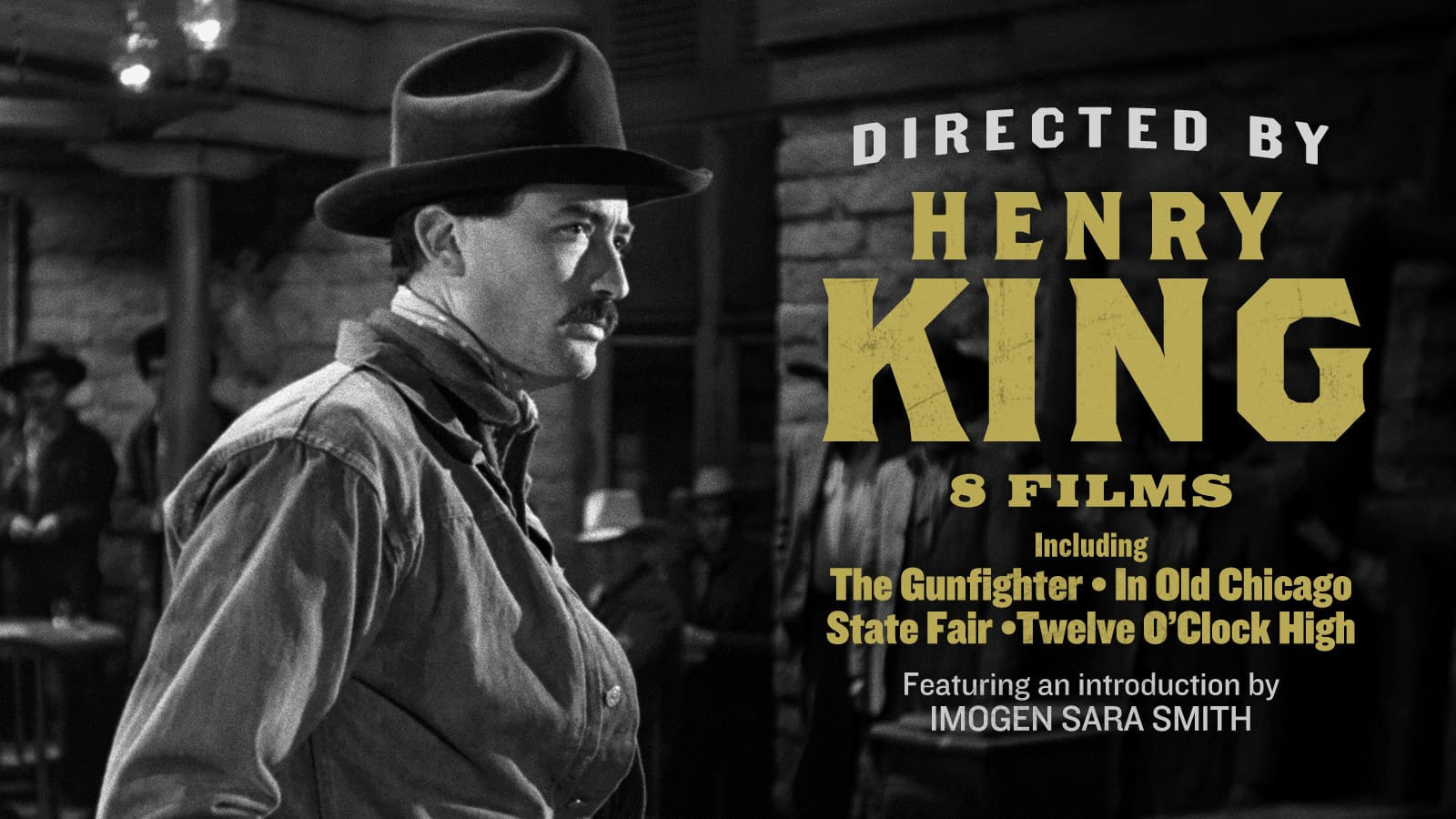
Directed by Henry King
WATCH NOW
Featuring a new introduction by critic Imogen Sara Smith
FEATURING: The Winning of Barbara Worth (1926), State Fair (1933), In Old Chicago (1938), The Song of Bernadette (1943), Twelve O’Clock High (1949), The Gunfighter (1950), The Snows of Kilimanjaro (1952), The Bravados (1958)

Noir in Color
WATCH NOW
When one thinks of film noir, the first images that come to mind are invariably shaded in moody, chiaroscuro-laden black and white. But there exists a parallel tradition of postwar crime films writ in blazing color that are every bit as cynical, subversive, and strikingly stylized as their monochrome counterparts. Coinciding with the rise of television—when studios turned increasingly to widescreen, Technicolor productions in order to compete with the alarmingly popular new medium—these films bring noir out of the shadows and into a world of heightened, luridly expressionistic color. Ranging from classics like Leave Her To Heaven, Bad Day at Black Rock, and House of Bamboo to fascinating curios like the jaw-droppingly queer Desert Fury and the European-shot Robert Mitchum rarity Foreign Intrigue, these brightly lit films can’t mask their dark hearts.
FEATURING: Leave Her to Heaven (1945), Desert Fury (1947), Inferno (1953), Niagara (1953), Black Widow (1954), Bad Day at Black Rock (1955)*, House of Bamboo (1955), I Died a Thousand Times (1955)*, Accused of Murder (1956), Foreign Intrigue (1956), A Kiss Before Dying (1956), River’s Edge (1957), The Badlanders (1958)*, Man of the West (1958), Party Girl (1958)

Setsuko Hara: Japan’s Most Beloved Star
WATCH NOW
No actress represents the golden age of Japanese cinema more fully than Setsuko Hara, whose radiant, compassionate presence made her nothing less than the living symbol of the changing role of women in Japanese society. Beginning her career at age fifteen, she appeared in more than one hundred films, including works by Akira Kurosawa (No Regrets for Our Youth, The Idiot) and Mikio Naruse (Repast, Sound of the Mountain). But it is her six collaborations with Yasujiro Ozu—including the masterpieces Late Spring and Tokyo Story—for which she will always be best remembered. Portraying selfless women navigating the tensions between family, tradition, and generational sea change, she illuminated the screen with performances of unparalleled subtlety and grace.
FEATURING: No Regrets for Our Youth (1946), Here’s to the Young Lady (1949), Late Spring (1949), Early Summer (1951), The Idiot (1951), Repast (1951), Tokyo Story (1953), Sound of the Mountain (1954), Tokyo Twilight (1957), Late Autumn (1960), The End of Summer (1961)

Directed by Blake Edwards
WATCH NOW
A showman of rare sophistication, writer-producer-director Blake Edwards had a knack for combining crowd-pleasing entertainment with a cosmopolitan wit and intelligence. Though best known for his hit comedies, Edwards was fluent in many genres, as seen in this selection of some of his finest works—including a nightmarish noir (Experiment in Terror), a searing study of alcoholism (Days of Wine and Roses), and a gender-bending musical classic (Victor/Victoria). In all these films, Edwards achieved an elegant blend of the popular and the personal that was keenly attuned to the rapidly changing social landscape of the mid-twentieth century.
FEATURING: He Laughed Last (1956), Experiment in Terror (1962), Days of Wine and Roses (1962), The Great Race (1965), Victor/Victoria (1982), That’s Life! (1986)
CRITERION COLLECTION EDITIONS
PREMIERING JULY 1
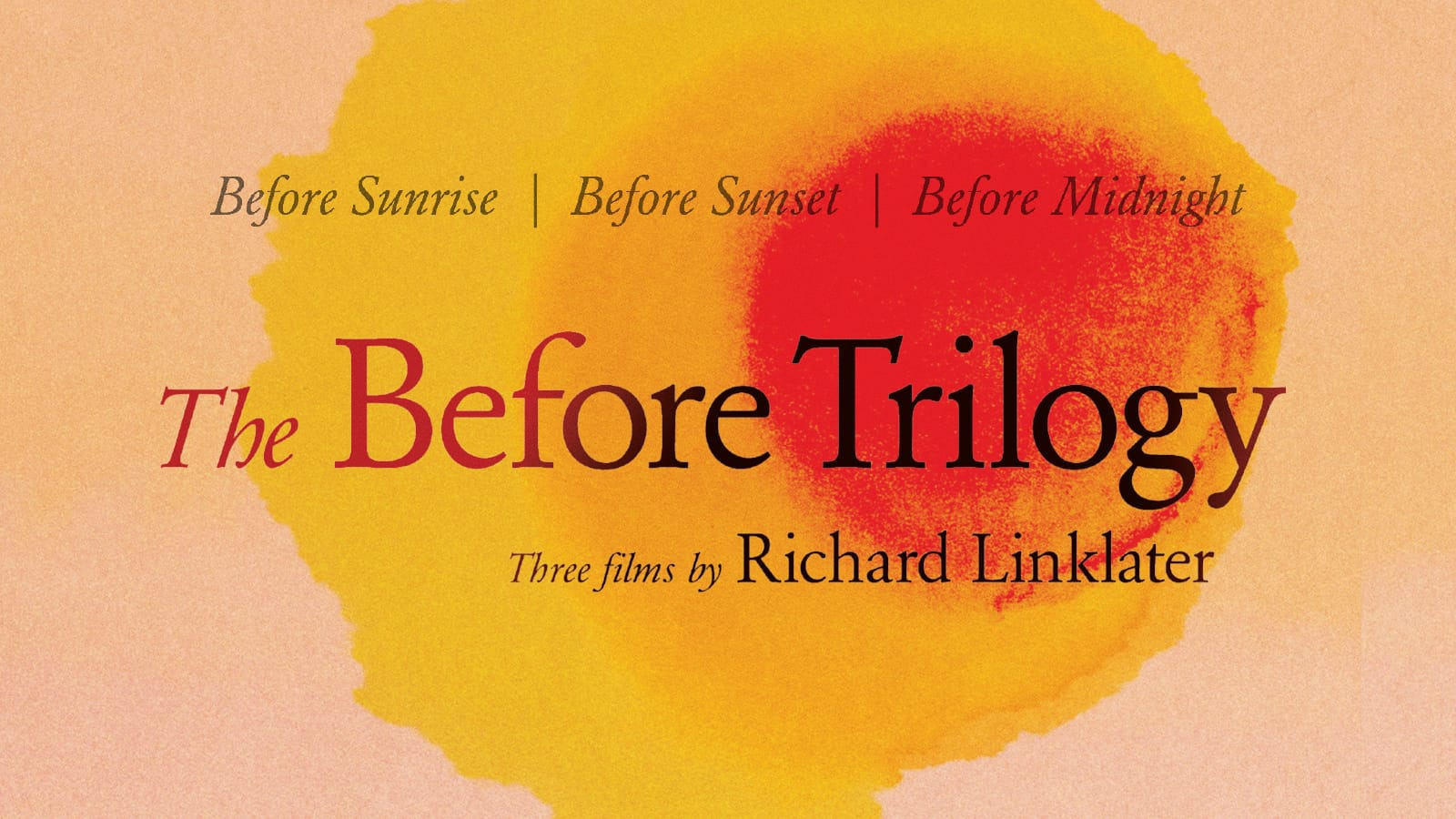
The cornerstone of Richard Linklater’s career-long exploration of cinematic time charts the progress of romantic destiny as it navigates the vicissitudes of ordinary life.
SUPPLEMENTAL FEATURES: Conversations between Linklater and actors Julie Delpy and Ethan Hawke, programs by filmmakers Athina Rachel Tsangari and Kogonada, the feature-length documentary Richard Linklater: Dream Is Destiny, and more.

Alex Cox’s hallucinatory biopic breaks all cinematic conventions in order to launch a satirical attack on American imperialism.
SUPPLEMENTAL FEATURES: Audio commentary by Cox and screenwriter Rudy Wurlitzer, a documentary about the making of the film, and more.

Gene Tierney plays a femme fatale whose love is as pure as it is poisonous in this deluxe fusion of Technicolor melodrama and dark-hearted film noir.
SUPPLEMENTAL FEATURES: An interview with critic Imogen Sara Smith.
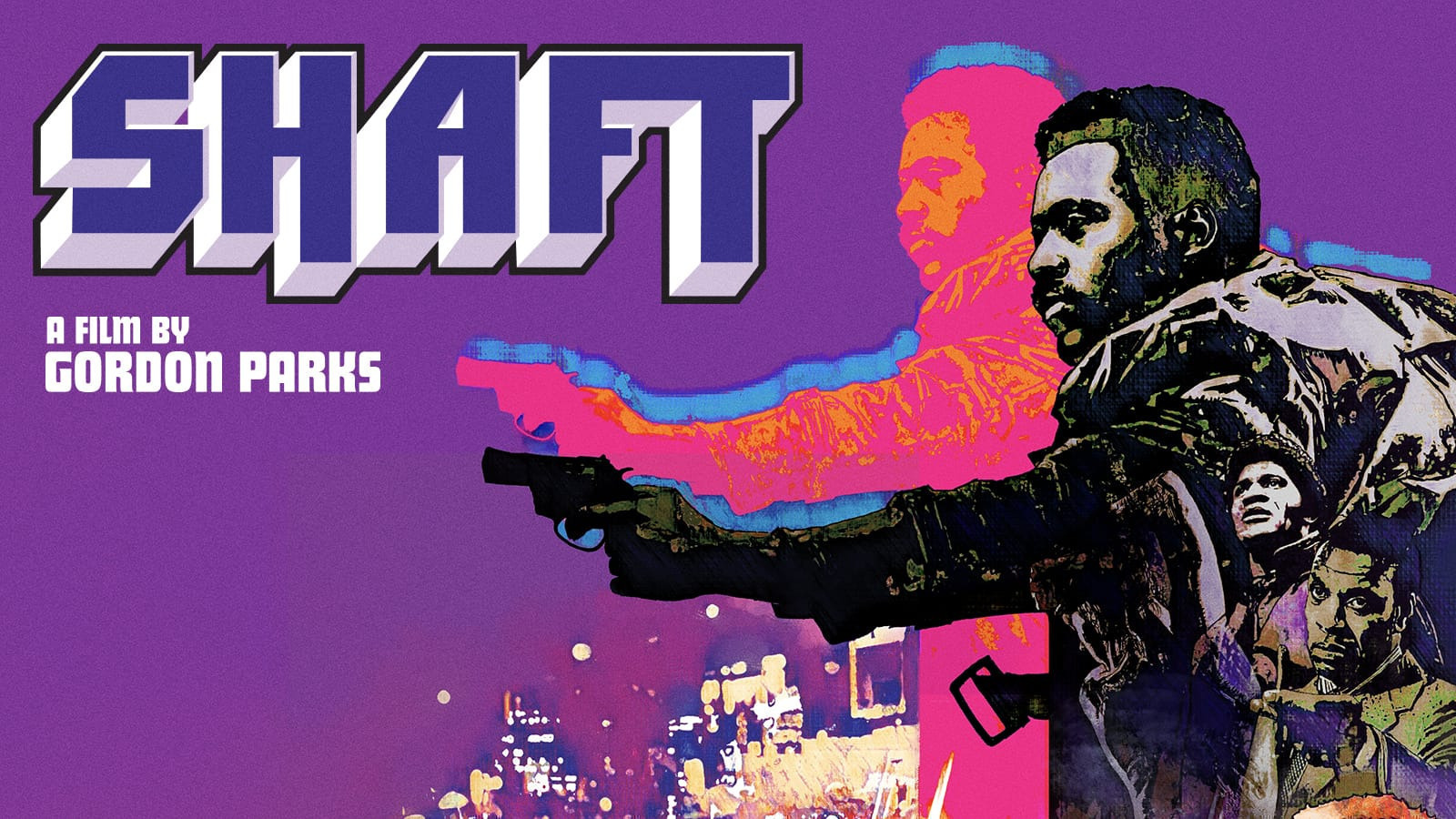
“Can you dig it?” Gordon Parks and Richard Roundtree gave the screen a new kind of badder-than-bad action hero with this endlessly influential blaxploitation blockbuster.
SUPPLEMENTAL FEATURES: A documentary on the making of the film; interviews with Parks, musician Isaac Hayes, and costume designer Joseph G. Aulisi; a behind-the-scenes program; and more.

Marlene Dietrich and James Stewart ride high in this superb comedic western, both a boisterous spoof and a shining example of its genre.
SUPPLEMENTAL FEATURES: Interviews with critic Imogen Sara Smith, author Donald Dewey, and director George Marshall; and a radio adaptation of the film.

With this stunningly visceral portrait of self-destructive machismo, Martin Scorsese and Robert De Niro elevated the boxing picture to the realm of operatic tragedy.
SUPPLEMENTAL FEATURES: Three audio commentaries featuring Scorsese, editor Thelma Schoonmaker, boxer Jake LaMotta, screenwriters Mardik Martin and Paul Schrader, and others; programs on Scorsese and De Niro’s longtime collaboration; a making-of program; an interview with actor Cathy Moriarty; and more.
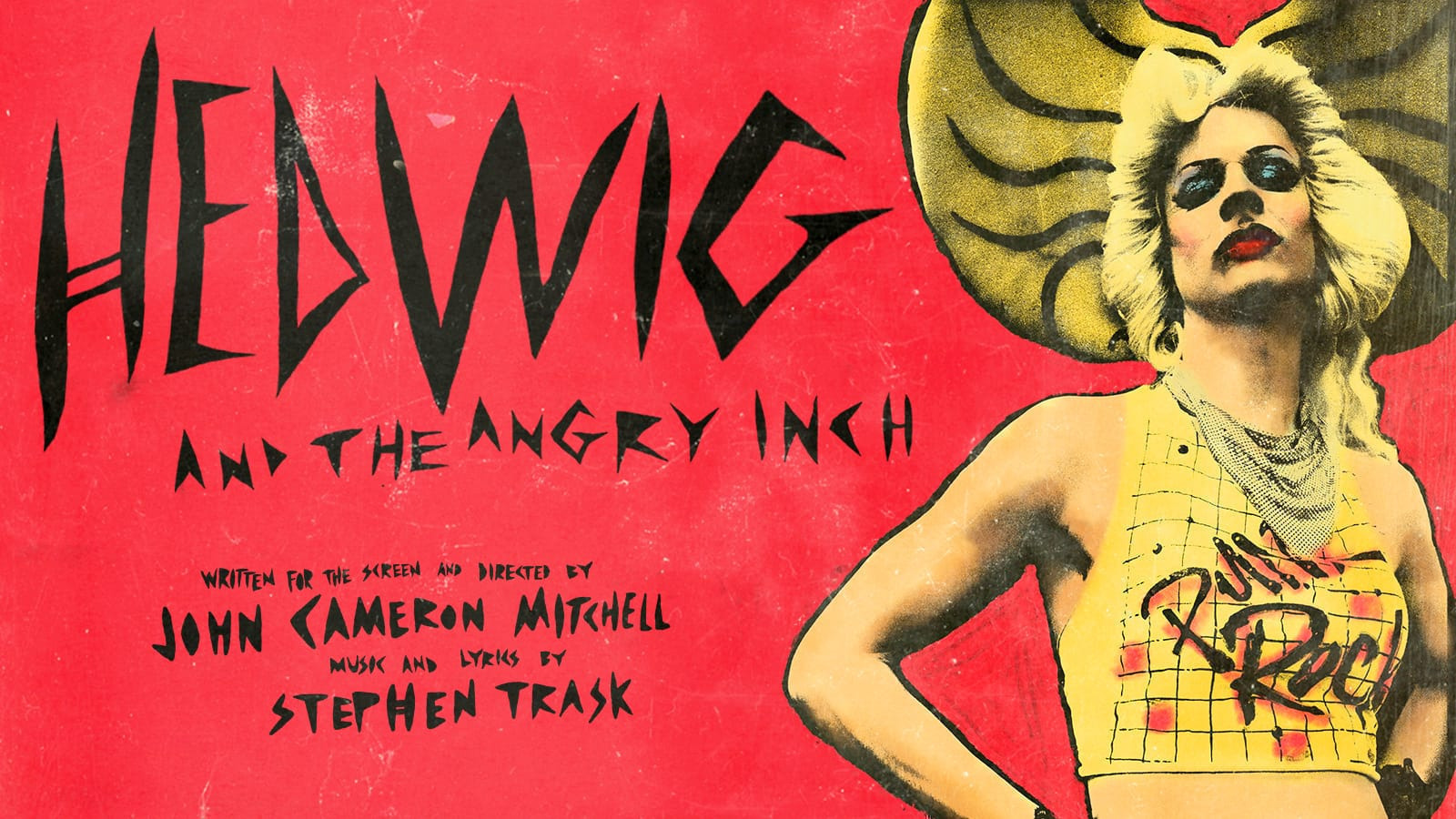
John Cameron Mitchell inhabits a “beautiful gender of one” in the transcendent screen adaptation of his trailblazing musical.
SUPPLEMENTAL FEATURES: Audio commentary by Mitchell and cinematographer Frank G. DeMarco, conversations with cast and crew members, a documentary on the development of the project, deleted scenes, and more.
EXCLUSIVE STREAMING PREMIERES

Air Doll
WATCH NOW
One of the most daring films by Hirokazu Kore-eda (After Life, Shoplifters) this fable of modern alienation transports the Galatea myth to present-day Tokyo. It’s there that a life-size blow-up doll (Bae Doona) lives in a shabby apartment, a mute companion to her middle-aged owner. Their routine—each day he talks to her, bathes her, makes love to her—is interrupted when fantasy becomes reality and the air doll suddenly comes to life. Like a newborn baby, she doesn’t understand what is going on around her, but she sees a world waiting to be explored outside the apartment and sets out to understand what “being alive” really means. Beautifully shot by cinematographer Mark Lee Ping-bing (In the Mood for Love), this bittersweet romantic fantasy explores the complexities of love and loss, joy and pain, and the intricacies and frailties of human existence.

Ahed’s Knee
WATCH NOW
A celebrated Israeli filmmaker named Y (Avshalom Pollak) arrives in a remote desert village to present one of his films at a local library. Struggling to cope with the recent news of his mother’s terminal illness, he is pushed into a spiral of rage when the host of the screening, a government employee, asks him to sign a form placing restrictions on what he can say at the film’s Q&A. Told over the course of one day, Ahed’s Knee depicts Y as he battles against the loss of freedom in his country and the fear of losing his mother. Winner of the Jury Prize at the 2021 Cannes Film Festival, the latest from fearless director Nadav Lapid (Synonyms) is a molotov cocktail of white-hot political rage that offers a searing critique of the censorship, hypocrisy, and violence instigated by Israel and repressive governments everywhere.
WOMEN FILMMAKERS

Lemon*
WATCH NOW
Janicza Bravo’s audacious satire of white masculinity in crisis is a singularly bizarre, disturbingly hilarious descent into an absurdist hell.

By the Time It Gets Dark
WATCH NOW
Thai director Anocha Suwichakornpong weaves a delicately poetic, shape-shifting portrait of a beautiful country haunted by political trauma.
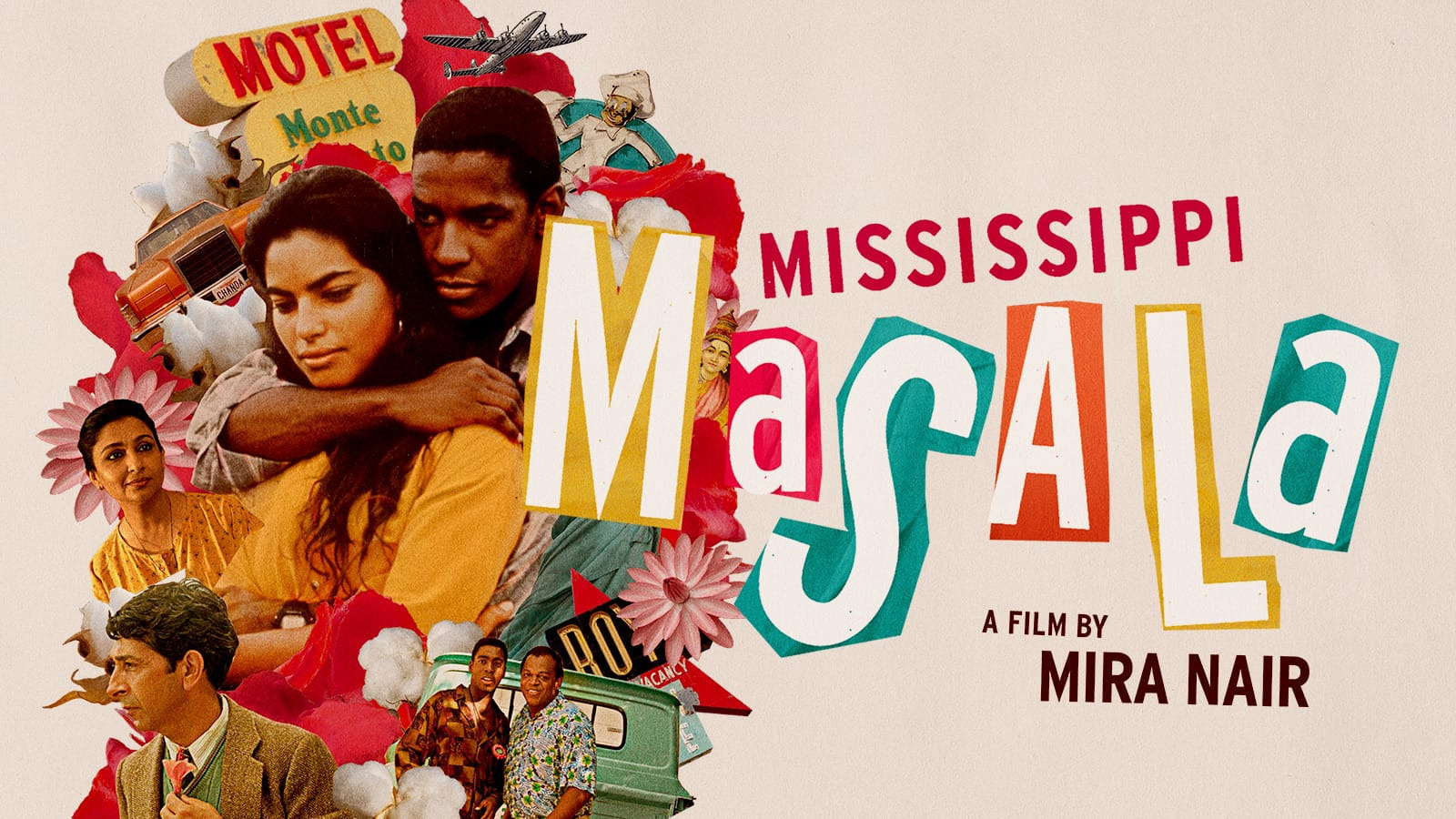
Mississippi Masala (Mira Nair, 1991)
Criterion Collection Edition #1127
WATCH NOW
The vibrant cultures of India, Uganda, and the American South come together in Mira Nair’s luminous look at the complexities of love in the modern melting pot.
SUPPLEMENTAL FEATURES: Audio commentary by Nair, a conversation between actor Sarita Choudhury and film critic Devika Girish, interviews with cinematographer Ed Lachman and screenwriter Sooni Taraporevala, and more.

Adoption (Márta Mészáros, 1975)
Criterion Collection Edition #1115
WATCH NOW
Márta Mészáros gives aching expression to the experiences of women in 1970s Hungary in this sensitive and absorbing tale of love, marriage, and motherhood.
SUPPLEMENTAL FEATURES: A video essay by scholar Catherine Portuges, an interview with Mészáros, a short film by Mészáros, and more.
More women filmmakers featured in this month’s programming: Wings (1966), Summer of the Serpent (2004), Peter & the Wolf (2006), Western (2017)
CRITERION ORIGINALS

Spotlight on Wings
WATCH NOW
In the latest installment of our Spotlight series, critic Imogen Sara Smith pays tribute to the great Ukrainian filmmaker Larisa Shepitko, whose early feature Wings brilliantly evokes a former fighter fighter pilot’s inner life.

Secrets of the Hollywood Archives: Twelve O’Clock High
WATCH NOW
One of the finest and most realistic war movies produced in 1940s Hollywood, Twelve O’Clock High portrays the harrowing experiences of a group of American flyers stationed in Britain during World War II. But how did the filmmakers achieve the exciting aerial shots of star Gregory Peck flying a B-17 bomber? In this edition of Secrets of the Hollywood Archives, visual effects artist Craig Barron and sound designer Ben Burtt turn to the studio vaults to uncover the behind-the-scenes footage that shows how movie magic was made.
SATURDAY MATINEES

Beauty and the Beast
WATCH NOW
Two of contemporary French cinema’s most magnetic stars—Vincent Cassel and Léa Seydoux—light up this visually sumptuous adaptation of the beloved fairy tale.

Matilda
WATCH NOW
It’s a hopping good time as Robert Mitchum, Elliott Gould, and a boxing kangaroo come together for one of the wildest and weirdest family films of the 1970s.

All Dogs Go to Heaven
WATCH NOW
Embark on a canine adventure through 1930s New Orleans with this decidedly non-Disney family favorite from independent-animation legend Don Bluth.

Peter & the Wolf
WATCH NOW
Gorgeous stop-motion animation is set to the beloved music of Sergei Prokofiev in this Oscar-winning reimagining of the classic fable.

Owd Bob
WATCH NOW
This immensely touching adaptation of the classic children’s book by Alfred Ollivant features breathtaking location shooting on the Isle of Man.
TRUE STORIES

Tigrero: A Film That Was Never Made
WATCH NOW
Maverick directors Samuel Fuller and Jim Jarmusch journey into the Brazilian jungle in this by turns playful and thoughtful odyssey into forgotten film history.
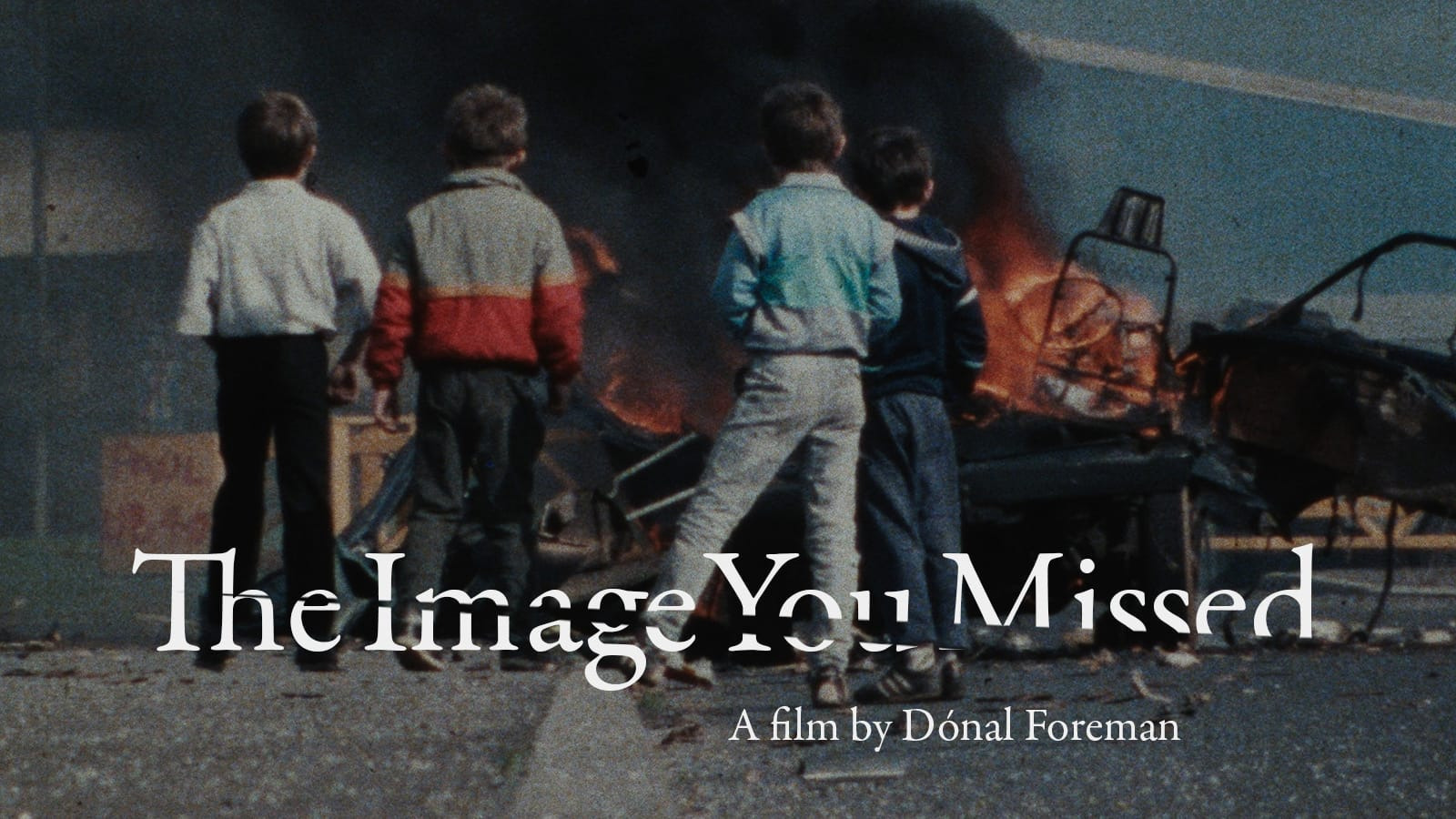
The Image You Missed
WATCH NOW
A son’s search for his father is interwoven with a history of the Northern Irish Troubles in this candid and moving documentary essay.

Dziga and His Brothers
WATCH NOW
Discover the surprising story behind the most revolutionary cinematic family of all time: Dziga Vertov and his filmmaking brothers.

Petition
WATCH NOW
This courageous and devastating work of cinematic activism captures ordinary Chinese citizens fighting for justice in the face of a Kafkaesque bureaucracy.
More documentaries featured in this month’s programming: Paulin Soumanou Vieyra: Trailblazer of African Cinema, a.k.a. Cassius Clay (1970), When We Were Kings (1996), Ring of Fire: The Emile Griffith Story (2005)
SHORT-FILM PROGRAMS

Paulin Soumanou Vieyra: Trailblazer of African Cinema
WATCH NOW
Overlooked for too long, Paulin Soumanou Vieyra (1925–1987) should be seen as one of the most important and influential figures in the development of African cinema. Born in Benin and later based in Senegal, Vieyra was one of the first Black Africans to direct a film, Africa on the Seine, a moving and thoughtful documentary about young Africans studying in Paris. His later works included Lamb, a revelatory and stirring study of beachside Senegalese wrestling; Birago Diop, conteur, about the eponymous poet and storyteller; and Behind the Scenes: The Making of “Ceddo,” a firsthand document from the set of Ousmane Sembène’s revolutionary classic. In addition to his filmmaking, Vieyra was founder of the Fédération Panafricaine des Cinéastes and a crucial mentor to key filmmaking figures like Sembène, Djibril Diop Mambéty, and Ababacar Samb-Makharam.
Special thanks: Black Film Center & Archive of Indiana University and African Film Festival, Inc.
FEATURING: Africa on the Seine (1955), A Nation Is Born (1961), Lamb (1964), Môl (1966), Birago Diop, conteur (1981), Behind the Scenes: The Making of “Ceddo” (1981), Iba N’Diaye (1982)
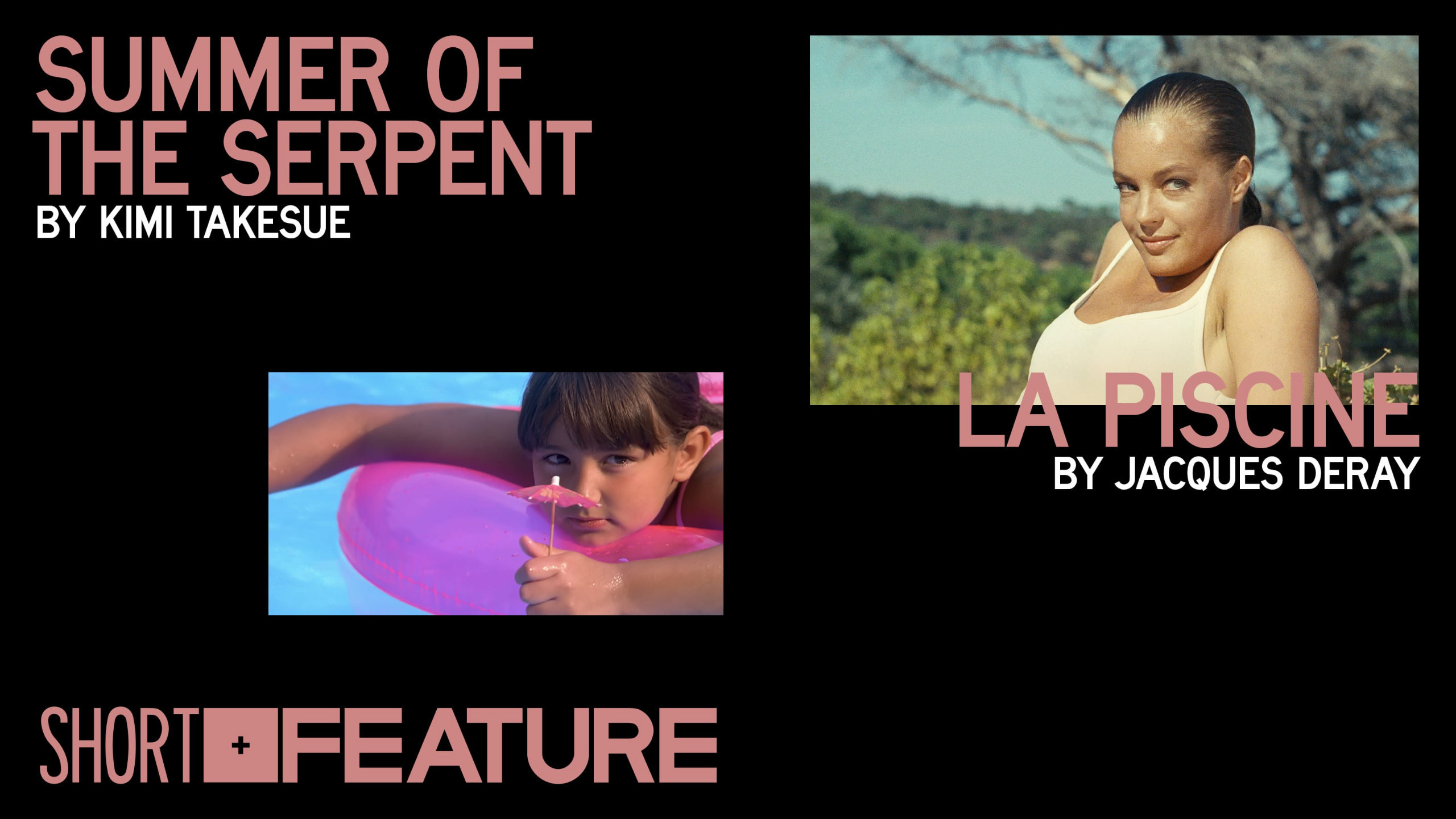
Trouble in the Water
Summer of the Serpent and La piscine
WATCH NOW
Languid days by swimming pools give way to intrigue and mystery in a pair of wet, hot summertime spellbinders.

Deconstructing Labor
Scaffold and Western
WATCH NOW
Two films ostensibly about construction workers become studies of so much more.
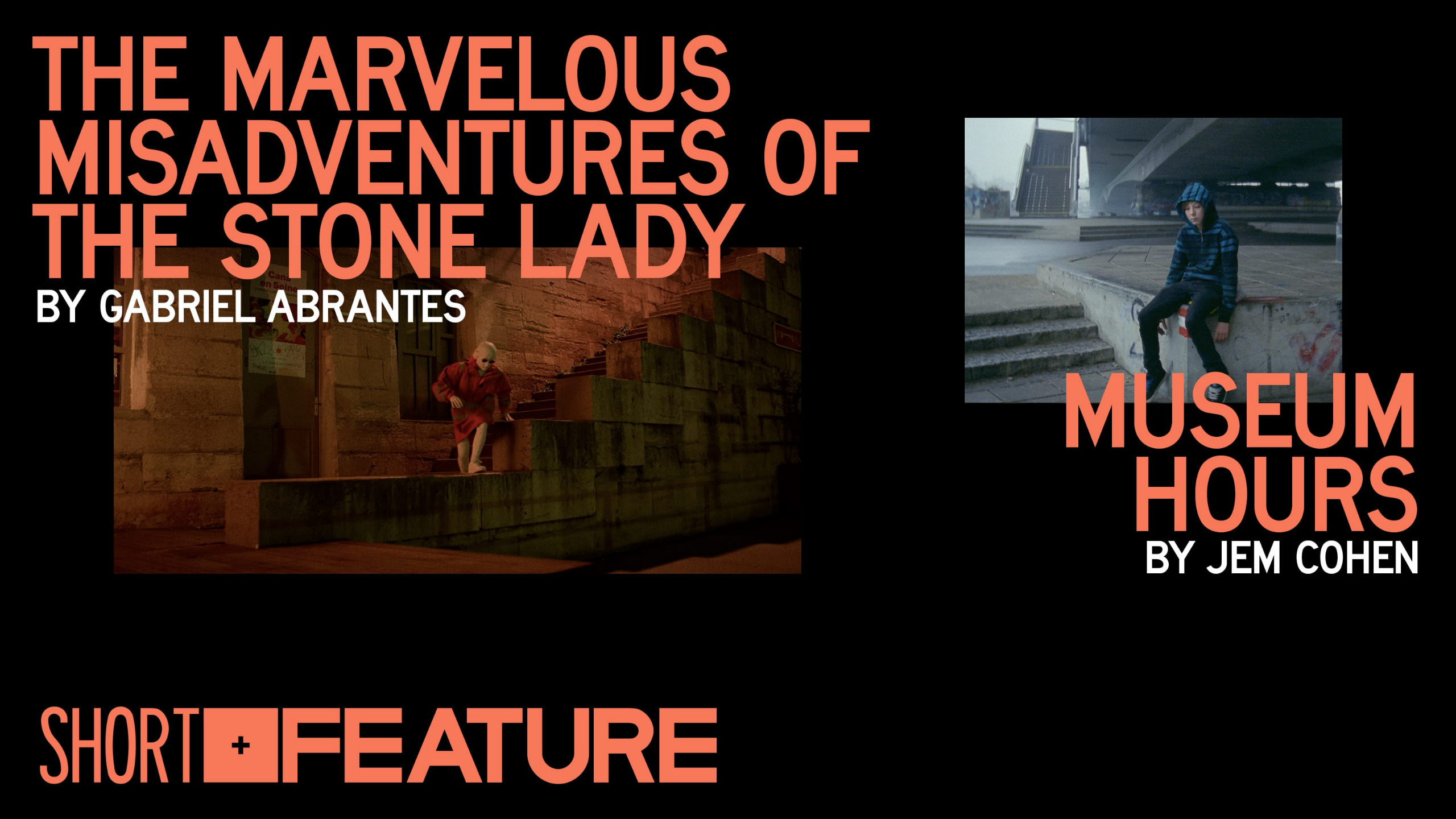
Shooting Galleries
The Marvelous Misadventures of the Stone Lady and Museum Hours
WATCH NOW
Captivating tales of human and cultural connection unfold amid the masterpiece-laden galleries of two of Europe’s most majestic museums.
DOUBLE FEATURES
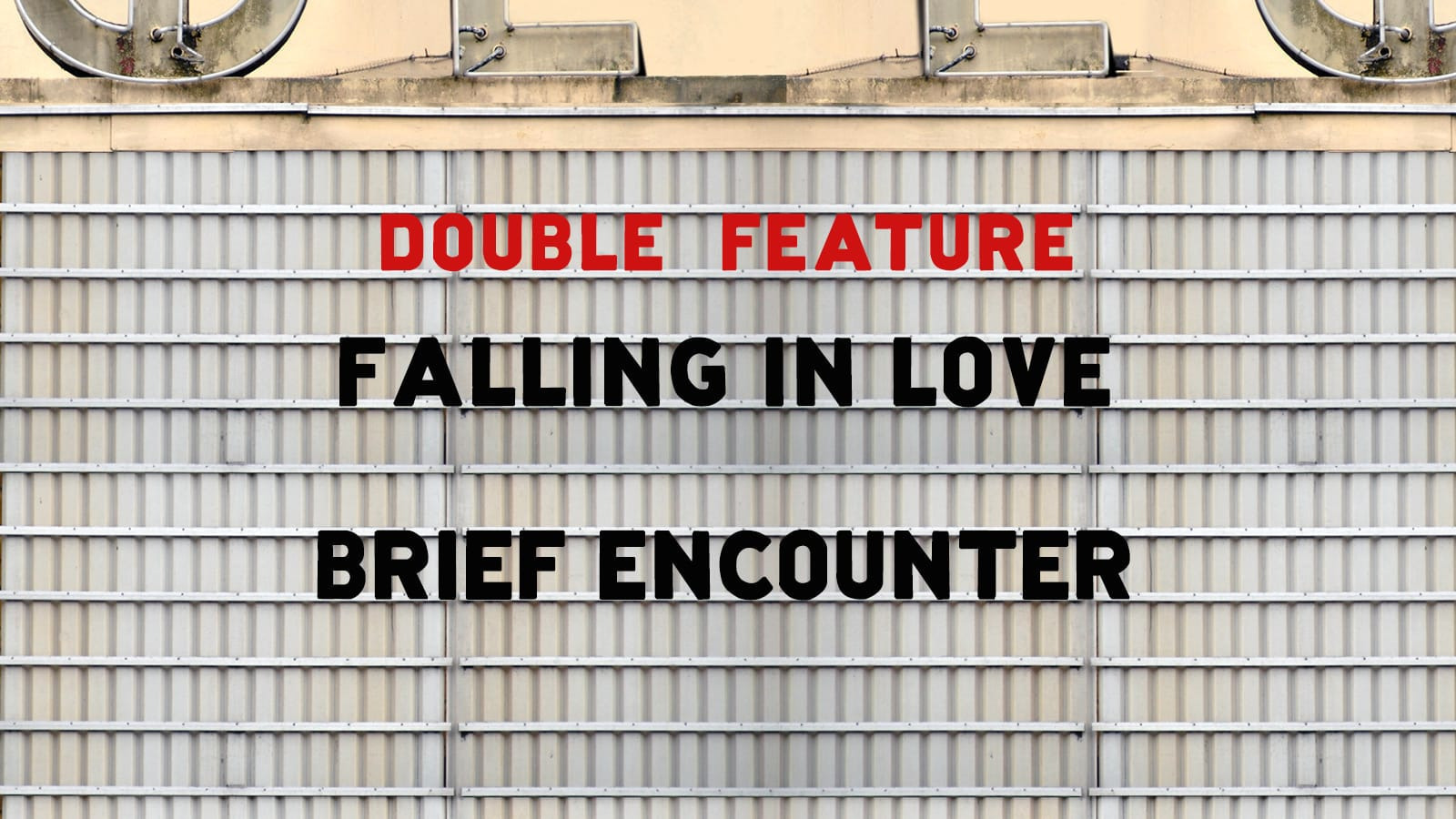
Love Train
Falling in Love and Brief Encounter
WATCH NOW
Railway-set chance meetings lead to illicit, will-they-won’t-they affairs of the heart for a pair of yearning couples.

Life’s a Drag
Victor and Victoria and Victor/Victoria
WATCH NOW
Blake Edwards’s beloved, gender-bending romp meets the daringly queer 1933 German musical comedy that inspired it.
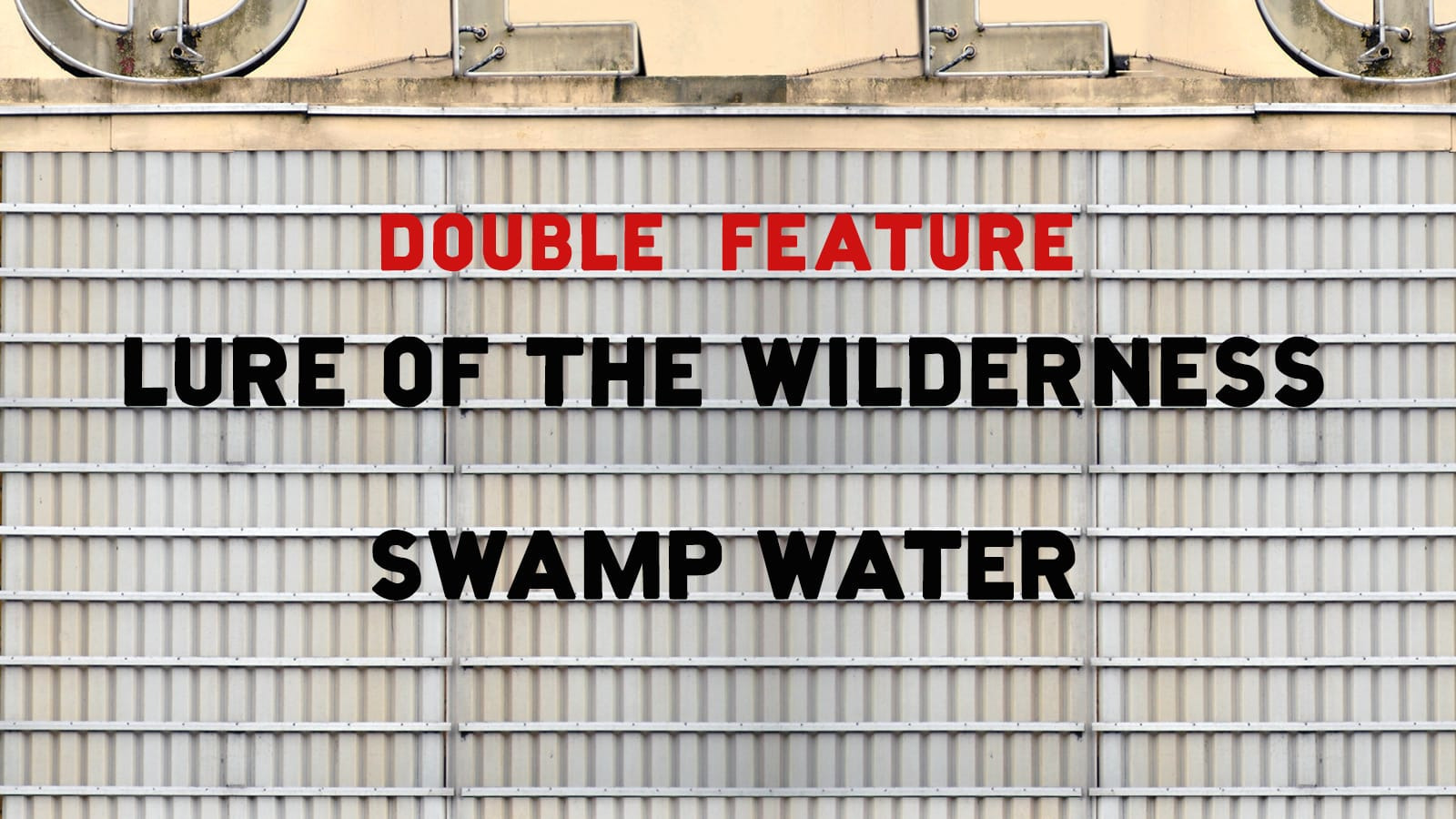
Swamp Things
Lure of the Wilderness and Swamp Water
WATCH NOW
Émigré directors Jean Negulesco and Jean Renoir head to the remote swamplands of the American South for a pair of vivid backwater dramas starring the great Walter Brennan.

Falling in Love Again
Violets Are Blue . . . and The Passionate Friends
WATCH NOW
The romantic dreams of youth bump up against the complex realities of adulthood when former lovers are unexpectedly reunited.
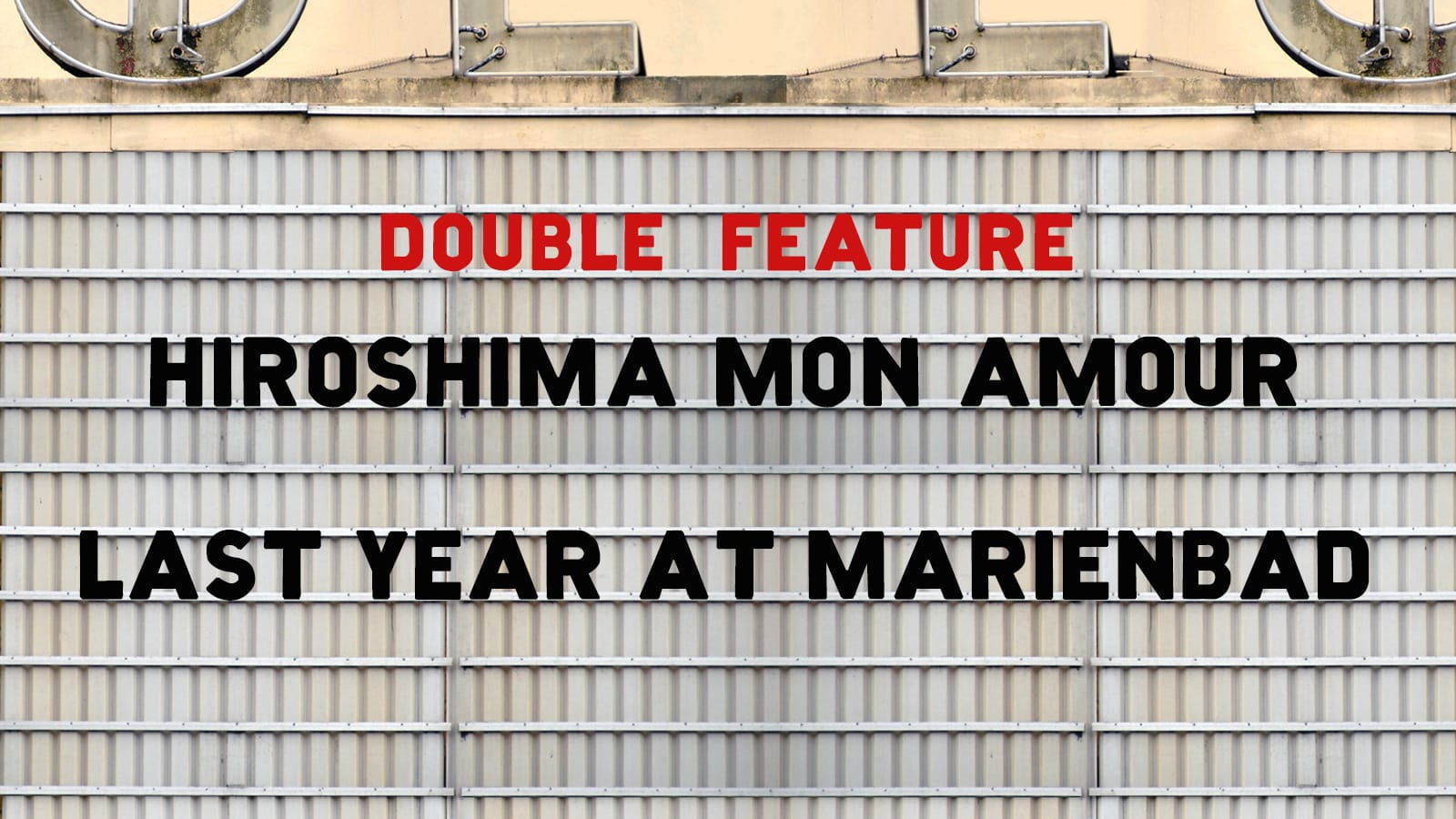
The Maze of Memory
Hiroshima mon amour and Last Year at Marienbad
FRIDAY, JULY 29
Alain Resnais plumbs the mysteries of time and memory in two radically influential landmarks of the French New Wave.



